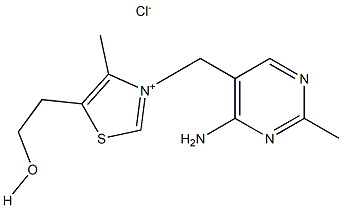4-Deoxypyridoxine Hydrochloride , ≥98.0%(HPLC) , 148-51-6
CAS NO.:148-51-6
Empirical Formula: C8H12ClNO2
Molecular Weight: 189.64
MDL number: MFCD00051296
EINECS: 205-714-8
| Pack Size | Price | Stock | Quantity |
| 100MG | RMB159.20 | In Stock |
|
| 500MG | RMB471.20 | In Stock |
|
| others | Enquire |
PRODUCT Properties
| Melting point: | 274°C(dec.)(lit.) |
| storage temp. | Inert atmosphere,Room Temperature |
| solubility | DMSO (Slightly, Heated), Methanol (Slightly, Heated) |
| form | Solid |
| color | White to Pale Red |
| biological source | synthetic (organic) |
| Stability: | Hygroscopic |
| CAS DataBase Reference | 148-51-6(CAS DataBase Reference) |
Description and Uses
4-deoxy Pyridoxine (DOP) is a vitamin B6 antimetabolite with diverse biological activities. It inhibits transport of pyridoxine , pyridoxal, and pyridoxamine in and reduces growth of S. carlsbergensis cells. DOP inhibits sphingosine-1-phosphate (S1P) lyase and reduces cyclic stretch-induced apoptosis in alveolar epithelial MLE-12 cells. DOP (5 mg, i.p.) reduces lysyl oxidase activity by 26% and reduces collagen and elastin crosslinking, resulting in limb abnormalities in chick embryos. It decreases latency to first seizure in mice (ED50 = 1 mmol/kg) and increases the occurrence and duration of myoclonic responses in baboons with photosensitive epilepsy. DOP reduces TNF-α and IL-6 production in mice infected with T. spiralis.
4-Deoxypyridoxine is the deoxy analogue of Pyridoxine (P991735). 4-Deoxypyridoxine is a vitamin B6 antimetabolite; 4-Deoxypyridoxine can induce a deficient status that alters the function and ultrastructure of EC similar to vascular disease.
Safety
| Symbol(GHS) |  GHS07 |
| Signal word | Warning |
| Hazard statements | H302-H315-H319-H335 |
| Precautionary statements | P261-P280-P301+P312-P302+P352-P305+P351+P338 |
| WGK Germany | 3 |
| RTECS | UT4800000 |
| HS Code | 29333990 |
| Toxicity | LD50 oral in chicken: 1570mg/kg |




